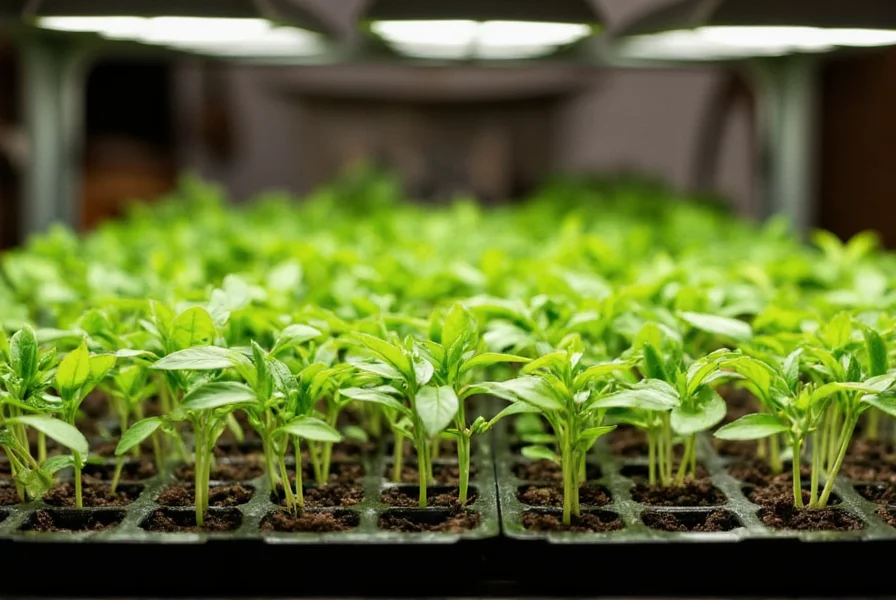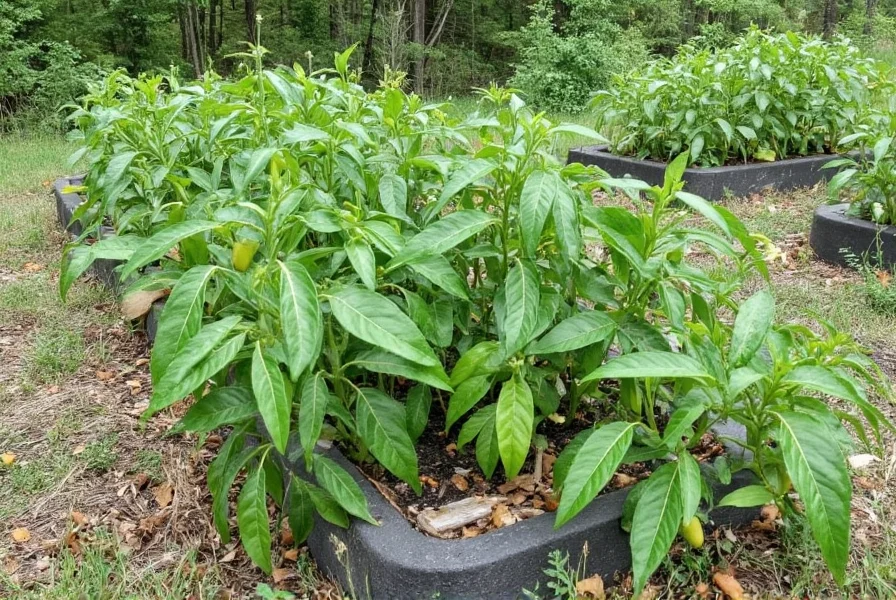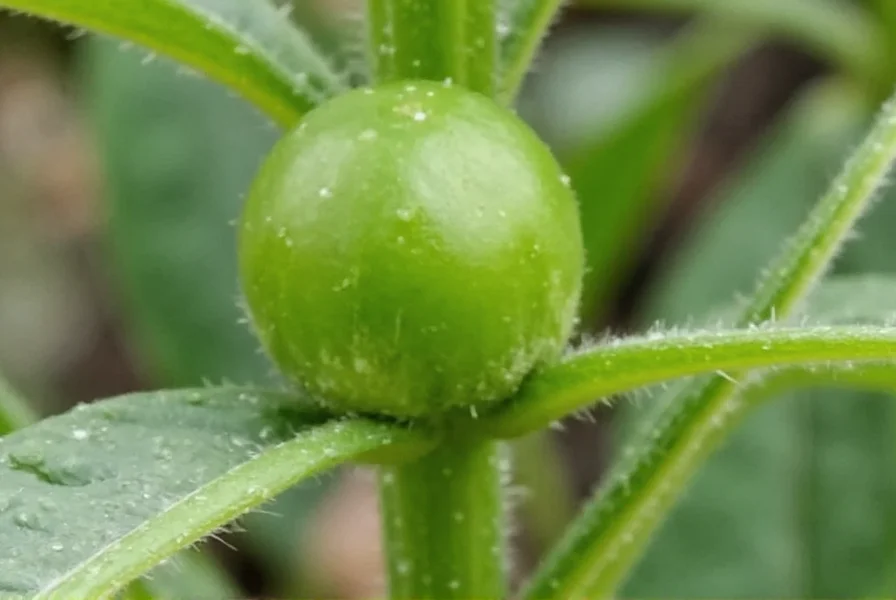Understanding Dubuque's Gardening Environment for Pepper Sprouts
Dubuque, Iowa resides in USDA hardiness zone 5a, experiencing average minimum temperatures of -20°F to -15°F. This climate presents specific challenges for growing pepper sprouts, which thrive in warmer conditions. Successful pepper cultivation here requires strategic planning due to the region's relatively short growing season of approximately 155 days between frosts.
Local gardeners must account for Dubuque's variable spring weather patterns when starting pepper sprouts. The average last frost date falls around May 15th, making indoor seed starting essential for most pepper varieties. Understanding these local conditions helps gardeners determine the optimal timing for starting pepper seeds indoors in Dubuque to ensure mature plants when transplanting season arrives.

Where to Source Pepper Sprouts in Dubuque
Dubuque offers several reliable resources for obtaining pepper sprouts and seedlings. The Dubuque County Extension Office coordinates seasonal plant sales featuring varieties suited to local conditions. These events typically occur in April and May, providing gardeners with access to healthy pepper transplants ready for the region's climate.
Local nurseries such as Dubuque Gardens and Tri-State Garden Center stock pepper seedlings during spring planting season. Farmers markets at the Grand River Center and Kennedy Activity Center become valuable sources for locally grown pepper plants starting in late May. For those preferring to start from seed, the Carnegie-Stout Public Library offers gardening workshops covering proper techniques for growing pepper sprouts in Dubuque.
Best Practices for Growing Peppers in Dubuque's Climate
Successful pepper cultivation in Dubuque requires specific techniques adapted to the region's climate. Gardeners should begin seeds indoors 8-10 weeks before the last expected frost date. Using heat mats maintains the ideal soil temperature of 75-85°F needed for optimal pepper sprout germination in Dubuque. Grow lights prevent leggy seedlings during the region's often cloudy early spring months.
| Pepper Variety | Days to Maturity | Dubuque Success Rating |
|---|---|---|
| California Wonder | 65-75 | ★★★★☆ |
| Cubanelle | 60-70 | ★★★★★ |
| Jimmy Nardello | 65 | ★★★★☆ |
| Hungarian Wax | 60-70 | ★★★☆☆ |
When transplanting pepper sprouts outdoors, wait until soil temperatures consistently reach 60°F and nighttime temperatures stay above 50°F. Using black plastic mulch helps warm Dubuque's typically cool spring soil. Row covers provide additional protection during early planting when unexpected cold snaps may occur.
Community Resources for Dubuque Gardeners
The Dubuque County Master Gardeners program offers extensive support for local pepper growers. Their free soil testing service helps gardeners optimize conditions for growing pepper plants in Dubuque climate conditions. Monthly workshops at the Extension Office cover topics from seed starting to pest management specific to regional challenges.
Community garden plots available through the City of Dubuque Parks and Recreation Department provide ideal spaces for pepper cultivation. These plots typically feature southern exposure and soil amended for optimal vegetable growth. The Dubuque Community Garden Network connects novice and experienced gardeners for knowledge sharing about successful pepper growing in Dubuque.

Seasonal Timeline for Pepper Success
Following a precise seasonal timeline maximizes pepper production in Dubuque's climate. Start seeds indoors February 25-March 10. Begin hardening off seedlings in early May. Transplant to garden beds after May 20, when frost risk has substantially decreased. Apply consistent watering and fertilization throughout summer months. Harvest first peppers typically occurs in late July through August for most varieties.
Extending the growing season into fall requires strategic planning. Using hoop houses or cold frames protects pepper plants from early fall frosts. Selecting faster-maturing varieties ensures harvest before Dubuque's first hard frost, which typically arrives around October 15. Proper end-of-season care helps preserve soil health for next year's pepper sprout cultivation in Dubuque gardens.
Frequently Asked Questions
When should I start pepper seeds indoors for Dubuque's climate?
Begin pepper seeds indoors 8-10 weeks before Dubuque's average last frost date of May 15. This means starting seeds between March 5-20. Using heat mats and grow lights ensures proper germination and strong seedling development during our region's cool spring months.
What are the best pepper varieties for Dubuque gardeners?
Cubanelle, California Wonder, and Jimmy Nardello perform exceptionally well in Dubuque's climate. These varieties mature within 60-75 days, fitting comfortably within our 155-day growing season. For hot pepper enthusiasts, Hungarian Wax and Early Jalapeño offer reliable production in our zone 5a conditions.
Where can I find pepper seedlings in Dubuque?
Local sources include Dubuque County Extension plant sales (typically April-May), Dubuque Gardens nursery, Tri-State Garden Center, and seasonal farmers markets at Grand River Center and Kennedy Activity Center. The Master Gardeners' plant sale usually offers varieties specifically selected for success in Dubuque's climate conditions.
How can I protect pepper plants from Dubuque's spring temperature fluctuations?
Use black plastic mulch to warm soil before transplanting. Employ row covers or cloches for the first 2-3 weeks after planting to protect against unexpected cold snaps. Choose planting locations with southern exposure and wind protection. Water in the morning so plants have daytime warmth to dry, reducing disease risk during Dubuque's often humid spring conditions.











 浙公网安备
33010002000092号
浙公网安备
33010002000092号 浙B2-20120091-4
浙B2-20120091-4